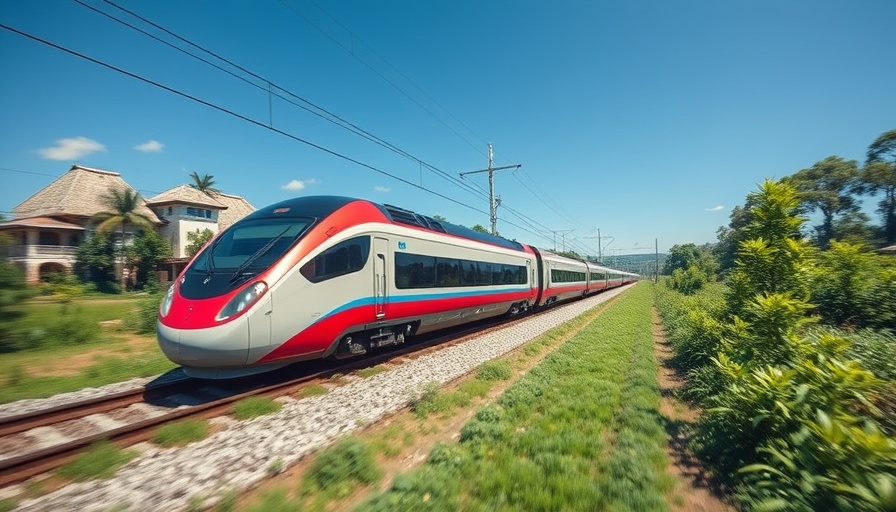
Rail Travel: A New Era for the Mekong Region
The Mekong region is undergoing a transformative journey, ushering in new opportunities for travelers seeking sustainable exploration. With the introduction of new rail lines connecting countries like Cambodia, Laos, and Vietnam, this initiative is making travel not only easier but also more eco-friendly. As visitors can now hop on a train amidst breathtaking landscapes, they're also playing a part in promoting sustainability through reduced carbon footprints.
Connecting Cultures: The Human Element of Rail Travel
Beyond its geographical significance, rail travel allows for deeper cultural exchanges. Imagine the stories shared between locals and tourists aboard these scenic trains, as each region's history unfolds between stations. Travelers can immerse themselves in the vibrant cultures of Southeast Asia, tasting local delicacies at train stops or purchasing handcrafted goods from local artisans who share their heritage passionately. This connection is invaluable in an age increasingly focused on authentic experiences.
Current Events: Landmark Journeys Begin
As rail service grows, so does the interest in sustainability across the Mekong. For example, Ruili Airlines recently launched new flights connecting Kunming to Sihanoukville, further linking this vibrant area to the world. Such developments reflect a collective effort among Mekong countries to enhance travel while preserving the local environment and cultures. Each journey made via these new routes is a testament to progress in both tourism and sustainability.
Future Trends: The Railway’s Role in Eco-tourism
Looking ahead, the anticipated growth in rail travel presents a unique chance for eco-tourism in the Mekong region. Experts suggest that integrating practices of responsible tourism will be crucial, from implementing eco-friendly train systems to promoting awareness of local ecosystems. This aligns perfectly with the increasing global focus on reducing tourism’s impact on the environment, positioning the Mekong as a leader in adopting eco-centric concepts.
Empowering Local Communities through Sustainable Travel
However, challenges remain. It's vital to ensure that the profits from tourism benefit local communities, bridging the gap between visitors and the towns they explore. One promising route emerging is the Voluntourism path—encouraging guests to not only observe but contribute actively. Initiatives may include volunteer opportunities that support environmental conservation or cultural projects, creating a cycle of positive influence.
Final Thoughts: Sustainable Travel in the Mekong
The evolution of rail travel in the Mekong presents a multi-layered opportunity that goes beyond mere transportation. It encompasses cultural exchange, community empowerment, and environmental stewardship. By choosing to travel sustainably, you not only enjoy the beauty of this unique region but also play a part in preserving it for future generations. Are you ready to invest in meaningful journeys that benefit both you and the places you visit?
Travel sustainably across the Mekong and discover the vibrant cultures waiting for you. The connections you forge and the communities you support will make your journey all the more memorable!
 Add Row
Add Row  Add
Add 




Write A Comment